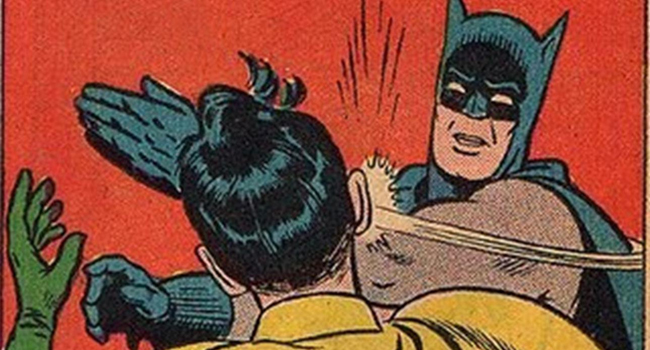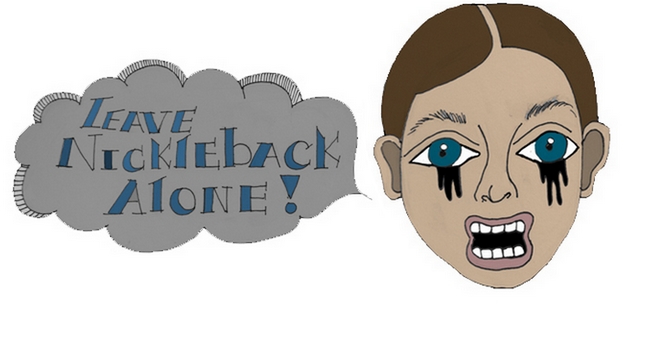There are few infallible cures for the unsettling alienation that can result from day-to-day human interaction.
That lone wolf feeling can slink in anytime without warning. Sometimes it’s an off-the-cuff comment, maybe a series of ill-fated events, but estrangement from our own kind is one of the more tragic human conditions that we all share. High school is chock-full of those triggers. In fact, it’s a ticking time bomb pulsing with disaffection, and there are only a few cures in the world for this common problem; the tried-and-true trinity seems to be composed of a stiff drink, a good cry and an iconic movie.
Yet there’s a problem with this formula. While the divot-carving tears may be inexhaustible and the river of excess to satisfy all the whiskey drifters boundless, the cinematic soil has shriveled into uninspired, creativity-starved dust.
There are no longer any films that acknowledge the alienation and challenges that continuously face the youth of America in the social black hole better known as high school.
The crop of “coming-of-age” tales that remain is nothing more than a series of contrived affirmations of those teenage trivialities; these films go to no lengths to offer any sort of consolation. The Breakfast Club offered a shining sliver of hope that maybe the social constructs of cliques can be broken, even if it only lasts the length of an 8-hour detention.
Say Anything proved that grand gestures involving boom boxes and a Peter Gabriel song can, indeed, score the girl. However, it’s difficult to find that cinematic idealism today. There aren’t any films to affect every high school outcast in every fiber of their ostracized beings and say, “Hey, I understand. It gets better.” Films today merely confirm that, yes, high school sucks, and yeah, you graduate eventually.
High schoolers who were too young to remember how the world navigated past that whole Y2K crisis have no concept of the romanticism that once lingered in locker-lined high school halls. They don’t have a beautifully tragic and accessible cinema saviors like John Hughes. There are no life-saving soundtracks or true-to-life characters or tales of geek triumph.
There are movies that satirize the decadence of high school—Bring It On, The Girl Next Door, Superbad—that don’t even exist in the same realm as typical adolescent struggles. And isn’t it a disservice to lend the distressed “future of America” a false sense of comfort when it comes to what are the four most awkward, emotionally ransacking years of their lives?
What’s most startling about the lack of coming-of-age high school tales is the absence of those seamless soundtracks.
With each song painstakingly chosen in order to forge some kind of aural connection with the viewers (the teens in question). Soundtracks were formerly regarded to reign at the same level of art as the film it complemented. Today movie soundtracks more closely resemble those loathsome “NOW!” compilations that assault listeners with every unimaginative Billboard single unleashed on our distraught ears.
The Breakfast Club concluded with John Bender’s moment of triumph scored with Simple Minds’ “Don’t You Forget About Me,” and John Cusak found no song suitable for the object of his affection other than “In Your Eyes” in Say Anything.
The closest Generation X has grazed this sort of musical iconography was with Heath Ledger’s grandiose performance of “Can’t Take My Eyes Off You,” featuring nothing less than a fully-stocked marching band flanking the combat boot-sporting anti-hero, to the glum Kat Stratford in 10 Things I Hate About You. And Clueless featured the soundtrack-to-end-all-soundtracks of the ‘90s with a masterful array of sad-sack Radiohead cuts and the decadent rage of Gwen Stefani’s chart candy.
It can be argued that Mean Girls serves as this generation’s quintessential high school movie. And if someone wants to owe his or her entire high school existence and subsequent survival to a celebrity train wreck’s swan song, have at it. While Mean Girls may fit squarely into the mold of a brilliant comedy, it had no iconic soundtrack, and certainly no candid admittance to pangs of alienation and angst. The film was emotionally flimsy, with no lasting impact.
Yeah, it’s incredibly quotable, but quotes don’t rouse distraught teens out of bed and down the hallways lined with social landmines.
There will be no triumphant fist thrust in the air, no smile-cracking memories of that wistful 16th birthday encounter, no grand gestures involving Peter Gabriel songs, because none of those seemingly trivial victories exist within the realm of today’s high school paradigm. The comfort that the silver screen once offered has fizzled and left 21st century America to come-of-age to the lull of keg parties and a Katy Perry soundtrack. But it’s not their fault; the kids simply don’t know any better.
Well, maybe Emma Stone got it in “Easy A.” Unfortunately, that blatantly ripped off the aforementioned movies and failed to pack theaters. It’s time for the art of the high school soundtrack to reemerge in it’s moment of triumph, just like characters it accompanied in early years.



